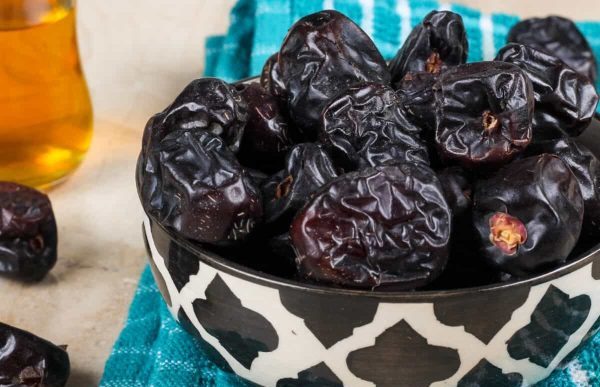
Dates: Buah Kurma in Indonesia & Malaysia
Buah Kurma are more than just a delectable treat in Indonesia and Malaysia. These sweet fruits hold deep cultural and religious significance, weaving themselves into the fabric of traditions and beliefs. This blog post delves into the fascinating world of Buah Kurma, also known as dates, in Indonesia and Malaysia, exploring their symbolic meaning, traditional consumption occasions, and the way they connect people and faith.
A Symbol of Faith: Unveiling the Religious Significance of Dates
In both Indonesia and Malaysia, where Islam is the dominant religion, dates hold a special place due to their connection to Prophet Muhammad (PBUH). Here’s how these dates are linked to Islamic faith:
Prophetic Tradition: Hadiths (sayings of Prophet Muhammad) mention the Prophet’s (PBUH) recommendation to break fast during Ramadan with dates. This practice, known as ‘iftar,’ is widely observed by Muslims worldwide.
Symbol of Strength and Sustenance: Dates are believed to symbolize strength and nourishment, offering a natural energy boost after a day of fasting during Ramadan.
Blessings and Hospitality: Offering dates to guests is considered a sign of hospitality and blessings in both cultures. This custom is particularly observed during Ramadan and other Islamic holidays.
The religious significance of dsates transcends mere symbolism. It serves as a tangible reminder of the Prophet’s (PBUH) teachings and fosters a sense of community during religious observances.
Traditions and Celebrations: When are Dates Consumed in Indonesia and Malaysia?
Beyond their religious significance, dates are also incorporated into various cultural traditions in Indonesia and Malaysia. Here are some specific occasions where dates are traditionally consumed:
Ramadan: As mentioned earlier, dates play a central role in breaking fast during the holy month of Ramadan. They are often the first food item consumed after sunset, following the practice of Prophet Muhammad (PBUH).
Eid al-Fitr: Celebrating the end of Ramadan, Eid al-Fitr festivities often involve sharing dates with family, friends, and neighbors. Dates symbolize sweetness and joy, marking the joyous occasion.
Other Islamic Holidays: Dates might also be offered or consumed during other Islamic holidays like Eid al-Adha and Mawlid al-Nabi (Prophet Muhammad’s birthday).
Cultural Gatherings: In some regions, dates might be served at weddings, special ceremonies, or even as a welcome gesture to guests visiting homes.
These traditions highlight the deep cultural integration of dates in Indonesia and Malaysia, signifying more than just a delicious treat.
A Bridge Between Cultures: The Unifying Power of Buah Kurma
The significance of dates goes beyond individual cultures or religions. Dates serve as a bridge, fostering a sense of community and shared traditions:
Connecting Communities: The shared love for dates transcends ethnicities and social backgrounds. Sharing dates during celebrations or offering them as a welcoming gesture promotes a sense of togetherness.
A Symbol of Hospitality: Offering dates signifies warmth and generosity, a universal language understood across cultures.
A Global Connection: The significance of dates in Islam connects Indonesian and Malaysian Muslims to the wider Islamic world, fostering a sense of belonging to a larger community.
Dates, with their rich cultural and religious significance, serve as a reminder of the unifying power of traditions and shared beliefs.
A Sweet Conclusion: More Than Just a Date
Buah Kurma, in Indonesia and Malaysia, are more than just a delicious fruit. They hold deep cultural and religious significance, symbolizing faith, strength, and hospitality. Their presence during celebrations and traditions strengthens communities and fosters a sense of shared identity. So, the next time you savor a date fruit, remember the rich tapestry of cultural and religious meaning woven into this delightful treat.
Key Highlights:
- Dates hold religious significance due to their connection to Prophet Muhammad’s (PBUH) practice of breaking fast with dates.
- They are traditionally consumed during Ramadan, Eid al-Fitr, and other Islamic holidays.
- Dates are also incorporated into cultural gatherings and serve as a symbol of hospitality in both Indonesia and Malaysia.
- The significance of dates transcends cultures, fostering a sense of community and connection within and beyond Indonesia and Malaysia.